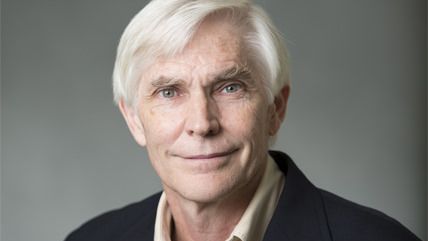Contributors

"Better Medicine" (page 22) is adapted from Peter Huber's book The Cure in the Code: How 20th Century Law Is Undermining 21st Century Medicine (Basic Books). Huber, 61, is a senior fellow at the Manhattan Institute, a partner at the law firm Kellogg, Huber, Hansen, Todd, Evans & Figel, and the author of multiple books, including Hard Green: Saving the Environment From the Environmentalists (Basic Books). His new book argues that the regulatory system needs to be more flexible so personalized molecular medicines can develop. "The core science of molecular medicine is racing ahead," Huber says. "But we're transforming it into licensed drugs much more slowly than we could be."
John Hood's "Laboratories for Prosperity" (page 32) looks at what political scientists sometimes call "the Big Sort," in which states differentiated themselves through policies that are either more friendly to free enterprise or more friendly to big government. Hood, 47, is the president of the John Locke Foundation in North Carolina. He became interested in the Big Sort, he says, because it's a "natural experiment in liberty. States that embrace greater fiscal and regulatory reform tend to get better economic outcomes, all other things being equal."
In "How Writers Coped Without Copyright" (page 56), Tom Bell discusses a period in American history when foreign authors' books were not covered by copyright law, forcing writers and publishers to create an alternative, extralegal system. Bell, 49, teaches at Chapman University's Dale E. Fowler School of Law and is the author of a forthcoming book, Privilege: Copyright, Common Law, and the Common Good (Mercatus). "I would not put copyright reform at the very top of any 'to do' list of reforms, given that nobody's life hangs in the balance," he says. But if it does come up, "reformers should regard copyright as no more than a statutory privilege, and should aim first and foremost to benefit the public rather than special interests."


Show Comments (1)